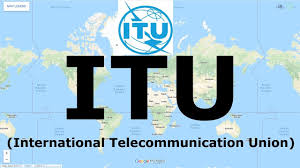ITU Report: Nigeria Excels in Mobile Data Affordability
According to the International Telecommunications Union (ITU), Nigeria is unique worldwide for having reasonably priced mobile data rates.
This was stated in the most recent Global System for Mobile Communications Association (GSMA) Report published by the ITU with the report titled “The Role of Mobile Technology in Driving Nigeria’s Digital Economy.”
With an average data cost of $0.38 per gigabyte, Nigeria provides affordable connection services to data customers across the country, according to the ITU.
The ITU claims Nigeria has the lowest mobile data in West Africa, among the lowest in Africa and the entire globe.
“The cost in Nigeria is a percent of GNI (per capita). Its basic data-only package is the lowest in West Africa and well below the average across Africa,” ITU said.
The body claims that data prices in Nigeria are lower, averaging $0.59 per gigabyte, than in other African nations including South Africa, Kenya, and Ethiopia.
According to the report, South Africa has an average price of $1.77 per gigabyte, while Ethiopia has an average of $0.68.
The average data rate in the United States of America is $6 per gigabyte, according to the ITU.
Nigerian telecom companies are actively pushing for a pricing rise in light of the nation’s affordable and competitive data rates.
It is intended to address the urgent issues the industry is facing as a result of inflation, currency devaluation, and the general economic slump in Nigeria during the previous few months.
MTN Nigeria’s Chief Executive Officer, Dr. Karl Toriola, in a recent interview, highlighted the diverse challenges associated with the Nigerian telecommunications industry.
“2024 was a very torrid year for the entire telecoms industry.
‘’We are the largest operators, so we were probably able to be a bit more resilient but it has been very difficult,” he said.
Toriola listed the main causes of the difficulties facing telecom operations in 2024, such as the high operating costs, which, in his opinion, now outweigh revenue.
He added that the quick inflation and currency devaluation were the main causes of the difficulties.
He claims that the tariff hike will allow telecom companies to expand their capacity in order to offer high-quality services.
“What the tariff adjustment allows us to do is to continue to reinvest, because we need to build capacity, build resilience, put in additional generators and alternative power supply systems for stable and high-quality networks,” Toriola said.
While acknowledging the necessity of pricing modifications, the Federal Government has assured Nigerians that any rise will be modest and not as much as 100% as the telcos had demanded.
In order to ensure that Nigeria’s digital landscape flourishes and is available to all Nigerians, stakeholders are attempting to strike a balance between the industry’s operational viability and consumer affordability as debates over the development of the telecom sector continue to take place.
NAN


Comments are closed.